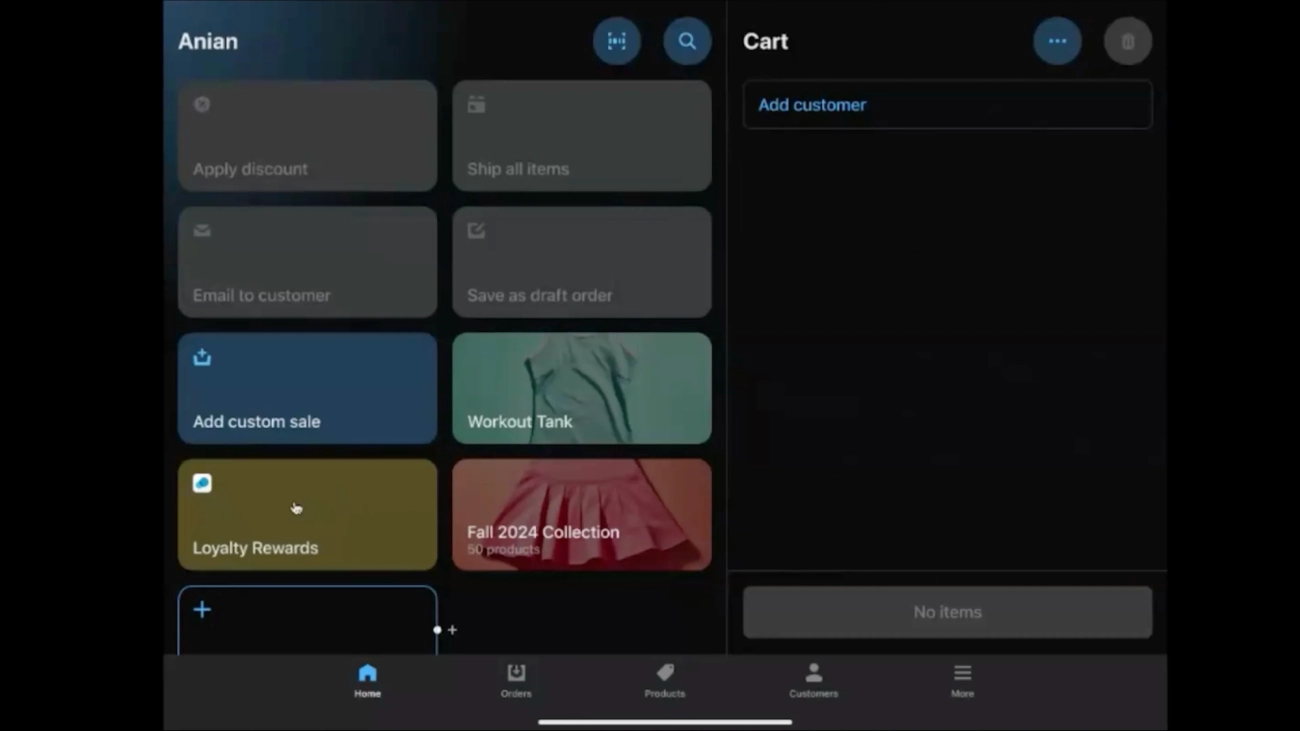How to Select the Best Cash Register Supplier for Your Business

Choosing the best cash register supplier can feel overwhelming when you’re looking to outfit your business with reliable, efficient hardware. The right supplier isn’t just about price — it impacts your daily operations, customer satisfaction, and long-term costs. Whether you run a small boutique or a busy retail store, finding a vendor who understands your specific needs and offers quality equipment is critical.
In this guide, you’ll discover exactly how to select the best cash register supplier by focusing on what really matters — from product quality and pricing to after-sales support and technology compatibility. This isn’t just theory; it’s practical advice shaped by experience with retailers like you.
Ready to make an informed decision that sets your business up for success? Let’s get started.
Understand Your Business Needs When Choosing the Best Cash Register Supplier

Before you jump into comparing cash register supplier reviews or looking for the best cash register suppliers near me, it’s crucial to understand your own business needs first. This step helps you pick a system that fits your daily operations and grows with you.
Types of Cash Registers and POS Systems Overview
There are different types of cash registers and POS systems to consider:
- Traditional Cash Registers handle basic sales transactions and are easy to use but limited in features.
- Digital Cash Registers offer more advanced functions like inventory tracking and sales reporting.
- POS Systems go beyond cash registers by integrating with software, mobile payments, and customer management tools.
Knowing which fits your business will guide your choice of supplier, especially since some specialize in certain hardware or software platforms.
Assessing Your Sales Volume and Transaction Complexity
Think about your average daily sales and how complex your transactions are. For example:
- Do you process a high volume of sales with multiple payment methods?
- Are your transactions simple cash sales, or do they include discounts, returns, and split payments?
- Do you require features like barcode scanning or loyalty program tracking?
Match these needs with the supplier’s product offerings to avoid paying for unnecessary features or missing out on essential ones.
Considering Compatibility with Existing Hardware and Software
If you already have hardware like scanners, printers, or software such as inventory or accounting systems, compatibility is key. Best cash register suppliers will offer solutions that smoothly integrate with what you use, saving you from costly upgrades or data migration issues.
Ask your potential supplier:
- Can the cash register or POS system connect with my current software?
- Is it easy to sync sales data with accounting or CRM tools?
- Does it support the payment terminals and receipt printers I already have?
The Importance of Scalability and Future-Proofing Your Choice
Your business will grow, and your cash register needs will evolve. Choose a system from a supplier that supports:
- Scalability so you can add new terminals or locations easily.
- Future-proof technology with software updates and hardware upgrades.
- Flexibility to adopt emerging payment methods or integration options.
Picking a supplier focused on long-term solutions ensures that your investment remains valuable and relevant as retail technology advances.
By clearly understanding your business needs upfront, you ensure that when you start comparing cash register supplier comparison data or looking for reliable cash register vendors, you’re set to choose a supplier who supports your goals now and in the future.
Research Cash Register Supplier Credibility and Market Reputation

When choosing the best cash register supplier, verifying their credibility is a must. A supplier’s reputation often reflects the quality of their products and how dependable they are in the long run. Here’s how to dig deeper:
Verify Supplier Credentials
- Check Business Licenses and Certifications: Make sure the supplier complies with U.S. business regulations and holds necessary certifications related to retail technology or POS hardware.
- Look for Industry Memberships: Suppliers involved with professional bodies often stay updated on trends and standards in POS systems.
- Ask for References: Trusted suppliers should willingly provide contacts of past or current clients.
Check Customer Reviews and Testimonials
- Read Multiple Reviews: Look beyond the supplier’s website. Go to independent review sites and forums where real customers share both pros and cons.
- Focus on Recent Feedback: Trends change fast in retail tech. Recent reviews reflect how the supplier handles current challenges like modern payment methods and software integration.
- Case Studies Provide Insights: Detailed case studies show how the supplier helped businesses similar to yours improve checkout efficiency or upgrade from older systems.
Explore Industry Experience and Client Portfolio
- Look for Proven Experience: Suppliers with years in the POS or cash register market better understand diverse business needs, from small shops to busy retail chains.
- Review Client Portfolio: A broad or well-known client base signals trustworthiness and capability to deliver quality hardware and support.
- Specialization Matters: Some suppliers focus on specific industries — restaurants, convenience stores, or larger retailers. Find one who knows your business type well.
By thoroughly researching supplier credibility and market reputation, you reduce risks and ensure you work with a reliable cash register vendor capable of meeting your needs now and as your business grows. This step is key when searching for best cash register suppliers near me or comparing major POS hardware suppliers for local businesses in the U.S.
Evaluate Product Quality and Technology for Cash Register Systems
When choosing the best cash register supplier, focusing on product quality and technology is crucial. A cash register is more than just a box that holds money—it’s the backbone of your daily transactions. Here’s what you should look for:
Durable and Reliable Hardware
- Sturdy build quality: Your cash register should be built to last, especially in busy retail environments where it faces constant use.
- Reliable performance: Downtime means lost sales. Choose hardware known for stability and minimal glitches.
- Resistant to spills and wear: Since many US retailers operate in environments where accidental spills or rough handling happen, durable casing and spill-resistant keyboards are a must.
Latest Technology and Features
- Modern user interface: Look for suppliers offering touchscreens or intuitive button layouts that speed up checkout.
- Support for cloud-based software: Many businesses in the US prefer cloud POS for easy updates and remote access.
- Smart features like inventory tracking, sales analytics, and customer management improve operational efficiency.
Compatibility with Diverse Payment Methods
- Accept all popular payment types: Your cash register should handle credit/debit cards, mobile wallets (Apple Pay, Google Pay), contactless payments, and even QR codes.
- EMV chip card readers: A must-have for compliance and security in the US market.
- Integration with existing payment terminals: If you have hardware you want to keep, ensure new cash registers work smoothly with it.
What to Ask Your Supplier
- Do their cash registers meet industry standards for hardware durability?
- Are software updates included or easy to apply?
- Can the system handle multiple payment options without extra fees or hardware?
- Is there support for future tech upgrades, so your system won’t become obsolete quickly?
By focusing on high-quality hardware combined with modern payment and software capabilities, you ensure your business runs smoothly and stays ahead in today’s competitive retail landscape. This is why many local cash register providers emphasize both durability and cutting-edge technology in their offerings.
Pricing and Total Cost of Ownership for Cash Register Suppliers
When choosing the best cash register supplier, price is always a major factor. But it’s not just about the upfront cost—total cost of ownership (TCO) matters much more over time. Here’s how to break it down:
Upfront Costs vs Long-Term Value
- Upfront cost includes the price of the cash register hardware and any software licenses.
- Don’t just pick the cheapest option. Sometimes spending a bit more initially means better durability, features, or fewer issues.
- Look for affordable cash register hardware that balances price with quality. This pays off by reducing replacements or downtime.
Warranty Terms and Maintenance Fees
- Check warranty coverage carefully. A longer warranty means peace of mind and potential savings on repairs.
- Ask about the supplier’s maintenance plans and support fees. Some vendors charge monthly or yearly fees for software updates, tech support, or hardware servicing.
- Transparent warranty and maintenance terms help avoid unexpected costs later.
Importance of Transparent Pricing and Avoiding Hidden Charges
- Always get a clear, detailed quote that lists all costs.
- Watch out for hidden fees like activation charges, software upgrade costs, or service call fees.
- Reliable suppliers are upfront about costs and offer fair pricing without surprises.
Key Takeaways for Pricing and Cost
- Compare total costs, not just sticker price.
- Factor in warranty, maintenance, and support when evaluating suppliers.
- Choose suppliers who offer transparent pricing and avoid hidden fees.
By weighing upfront costs against long-term service value, you can select a cash register supplier that fits your budget and supports your business efficiently. This approach saves you both money and headaches down the road.
After Sales Support and Service for Cash Registers

When choosing the best cash register supplier, after-sales support and service can make or break your experience. Buying affordable cash register hardware is just the start—the real value often comes from reliable support once your system is up and running.
Importance of Reliable Technical Support and Training
- Quick and accessible technical support ensures your business doesn’t lose sales due to system downtime.
- Look for suppliers offering free or affordable training so your staff can use the cash register system efficiently from day one.
- A supplier who provides remote assistance and easy troubleshooting guides helps keep things running smoothly without waiting for on-site visits.
Warranty Periods and Service Level Agreements
- Always check the warranty length and what it covers—this protects you from unexpected repair costs.
- Clear service level agreements (SLAs) define response times and resolution windows, which matter when every minute counts.
- Some vendors offer extended warranties and onsite service, which can be a big plus if you want peace of mind.
Availability of Spare Parts and Repair Services
- Choose a supplier who stocks spare parts locally or guarantees fast shipping to avoid long repair delays.
- Reliable repair services matter, especially when switching to modern POS hardware that’s more complex than traditional cash registers.
- Having access to eco-friendly and energy-efficient parts can also align with sustainable business practices.
Supplier Responsiveness and Communication Efficiency
- A vendor who responds quickly to emails, calls, or support tickets shows professionalism and respect for your time.
- Transparent communication about repair timelines, system updates, or any issues improves trust.
- Check for suppliers with positive cash register supplier reviews praising their support—this often reflects real customer experiences.
****: After-sales service is critical in choosing your cash register supplier. Prioritize vendors offering solid technical support, clear warranties, accessible parts, and fast communication. These elements ensure your retail checkout system stays reliable, helping your business run without costly interruptions.
Supplier Location and Delivery Options for Cash Register Suppliers
When selecting the best cash register supplier, where they are located can make a real difference in your buying experience and long-term satisfaction.
Local vs International Suppliers
Choosing a local cash register provider often means faster shipping, easier installation, and quicker access to support services. If something goes wrong, you can usually get help or parts right away without long wait times or extra shipping costs. Plus, local suppliers tend to understand the U.S. market better, including regional business needs and compliance standards.
On the other hand, international suppliers might offer lower prices or a wider range of technology options. But you should be prepared for longer shipping times, potential customs delays, and sometimes limited local support. Also, language barriers and time zone differences can slow down communication.
Importance of Timely Delivery and Installation Ease
Getting your cash registers delivered on time is critical to avoid disruptions in daily business. Make sure your supplier has a reliable delivery record and clear communication about expected shipping dates. Equally important is ease of installation—a supplier offering installation assistance or guides can save you headaches during setup.
Local Support Services and Faster Response Times
When you buy from a nearby vendor, customer service tends to be more responsive and hands-on. Local support teams can quickly dispatch a technician if your system needs repair or upgrades, reducing downtime. Something that can be a big deal for busy U.S. retailers relying on smooth point-of-sale operations.
Key Takeaways
- Local cash register suppliers provide quicker delivery and faster access to service and repairs.
- International suppliers might be cost-effective but often come with longer wait times and limited direct support.
- Prioritize suppliers with transparent shipping policies and clear plans for installation.
- Look for vendors offering on-site or remote setup support to get you running without delays.
- Responsive local support can save you valuable time and keep your business running smoothly.
Selecting a supplier based on location and delivery options is just as important as considering price or technology. For most U.S. businesses, local suppliers offer the peace of mind and service reliability that help keep your sales moving.
Customization and Integration Capabilities for Cash Register Systems
When choosing the best cash register supplier, customization and integration capabilities are key factors that can make a big difference for your business. Not all retailers operate the same way, so having a system that adapts to your specific workflow is essential.
Tailor Systems to Your Business Workflow
A top cash register system should allow you to customize settings and functions based on how you run your operations. Whether you need unique tax rules, employee access levels, or specialized receipts, a flexible solution supports your exact needs. This level of customization helps streamline daily tasks and improves staff efficiency, reducing mistakes at checkout.
Integration with Inventory, Accounting, and CRM Software
Look for cash register suppliers that offer seamless integration with your existing tools, such as:
- Inventory management systems to keep stock updated in real time
- Accounting software that simplifies bookkeeping and tax reporting
- Customer Relationship Management (CRM) platforms for targeted marketing and loyalty programs
This integrated approach means your POS hardware works smoothly with your broader business systems, cutting down manual data entry and improving accuracy.
Flexibility for Future Upgrades and Peripherals
Business needs evolve, so your cash register system should be scalable and flexible. Find suppliers offering options to add:
- Additional payment terminals
- Barcode scanners
- Receipt printers
- Mobile devices for tableside or curbside checkout
Having the ability to upgrade or expand your system without a full replacement saves money and keeps your business competitive. This flexibility also prepares you for changes in payment trends or customer demands.
When you consider these points, you not only get a cash register that fits your current needs but also supports your growth. For more insight on finding trusted cash register suppliers with robust features and warranties, check out how to find trusted cash register suppliers and explore options for affordable cash register systems with warranty.
Sustainability and Compliance When Choosing a Cash Register Supplier
When selecting the best cash register supplier, it’s important to consider sustainability and compliance in addition to the hardware and features. This ensures your business stays on the right side of regulations while supporting eco-friendly practices.
Supplier Compliance with Industry Standards
- Check for certifications like PCI DSS for payment security, FCC for electronic devices, and other relevant US standards. These show the supplier takes compliance seriously.
- Ask about data protection policies and software updates that keep systems secure and compliant with evolving regulations.
- A supplier with a strong track record in regulatory compliance will reduce risks for your business and protect customer data.
Eco-Friendly and Energy-Efficient Options
- Many suppliers now offer energy-efficient cash registers and POS systems designed to reduce power consumption and lower utility costs.
- Look for hardware made with recyclable materials or designed with a smaller environmental footprint.
- Choosing an eco-friendly cash register aligns with growing consumer demand for responsible business practices and can be a selling point locally.
Benefits of Sustainable Choices
- Reduces your store’s carbon footprint and operating costs over time.
- Ensures your business is prepared for future regulations as environmental standards tighten.
- Supports your brand image as a responsible, forward-thinking retailer.
In short, aim to partner with a cash register supplier who not only delivers solid technology but also complies with industry standards while offering green product options that fit your business’ values and growth plans.
